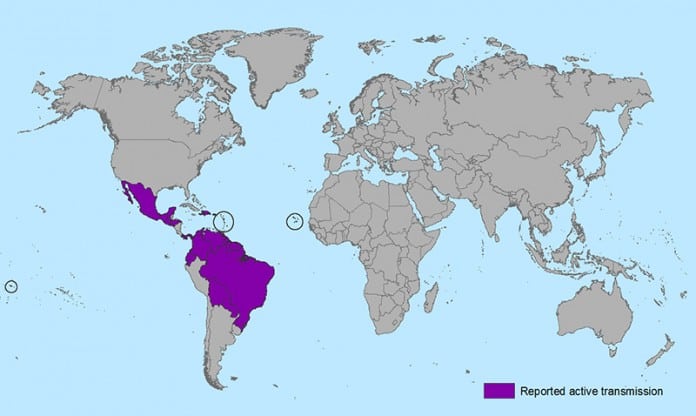
The World Health Organisation has convened an emergency committee to discuss the “explosive” spread of the Zika virus, which is linked to thousands of birth defects in Latin America.
“Last year the disease was detected in the Americas, where it is spreading explosively,” Margaret Chan, the WHO director general, said at a special briefing in Geneva. It was “deeply concerning” that the virus has now been detected in 23 countries in the Americas, she added.
The spread of the virus has prompted governments across the world to advise pregnant women against going to the areas where it has been detected.
Chan said: “The level of alarm is extremely high. Arrival of the virus in some cases has been associated with a steep increase in the birth of babies with abnormally small heads.”
There is no vaccine or cure for Zika, which has been linked to microcephaly, a serious condition that can cause lifelong developmental problems.
“A causal relationship between Zika virus and birth malformations and neurological syndromes has not yet been established – this is an important point – but it is strongly suspected,” Chan said.
“The possible links have rapidly changed the risk profile of Zika from a mild threat to one of alarming proportions. The increases incidence of microcephaly is particularly alarming as it places a heartbreaking burden on families and communities.
Chan outlined four reasons for alarm: “First, the possible association of infection with birth malformations and neurological syndromes. Second, the potential for further international spread given the wide geographical distribution of the mosquito vector. Third, the lack of population immunity in newly affected areas. Fourth, the absence of vaccines.”
This year’s El Nino weather patterns mean mosquito populations are expected to spread, Chan added.
“For all these reasons, I have decided to convene an Emergency Committee under the International Health Regulations.”
The committee will meet on Monday and will advice on the international responses and specific measures in affected countries and elsewhere.
Since September, Brazil has registered nearly 4,000 cases of babies with microcephaly.
Brazilian president Dilma Rousseff pledged to wage war against the Aedes aegypti mosquito that spreads the virus, focusing on getting rid of the insect’s breeding grounds.
Lawrence Gostin, a public health law expert from Georgetown University and member of a commission that criticised the WHO for its response to the Ebola virus, warned that the Zika has has an “explosive pandemic potential”.
Speaking to BBC’s World Service, he said: “With the Rio Olympics on our doorstep I can certainly see this having a pandemic potential.”
He said every review of the WHO’s response to Ebola found that it was “too little, too late”.
Interviewed minutes before Chan’s announcement, he said: “I’m disappointed that the WHO has not been acting proactively. They have not issued any advice about travel, about surveillance, about mosquito control.”
“The very first thing I would propose is a global mosquito eradication effort, particularly in areas with ongoing Zika transmission. We really need to declare war on this species of mosquito.”
The WHO’s leadership admitted last April to serious missteps in its handling of the Ebola crisis, which was focused mostly on three west African countries and killed more than 10,000 people.
Some critics have said the WHO’s slow response played a major role in allowing the epidemic to balloon.
Zika is related to yellow fever and dengue. An estimated 80% of people infected have no symptoms, making it difficult for pregnant women to know whether they have been infected.




































